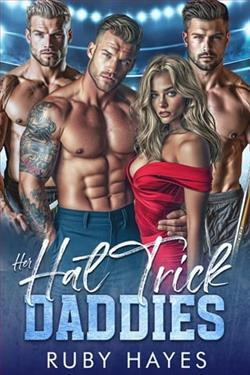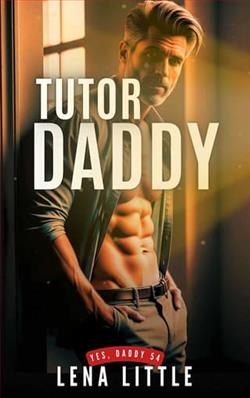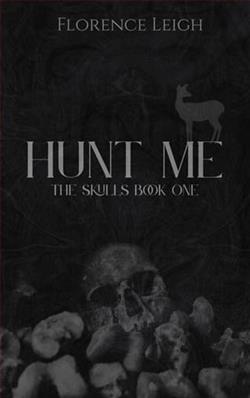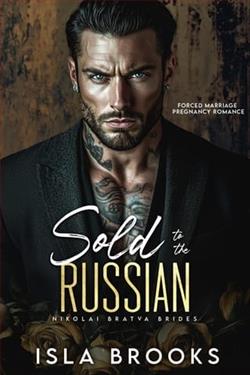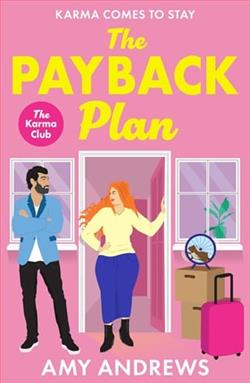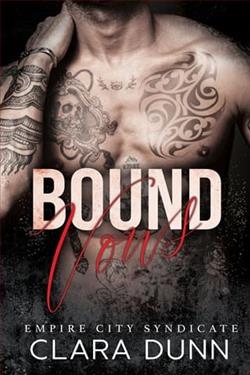Page 14 of Chasing Waves
“Sorry I wasted your time. Enjoy the coffee,” I replied, defeated.
I didn’t bother waiting for a response, because I knew there wouldn’t be one. She was pushing me away and I was all too familiar with how that went.
My mom had pushed us all away after the accident. She and Evie had been fighting and she got distracted, drifting across to the other side of the road, causing her to overcorrect, sending them rolling into a ditch. No matter how many times Evie tried to reassure her that it wasn’t her fault, my mom wasn’t ready to hear it. Evie had sustained debilitating injuries to her legs that required surgeries and pins, her future as a professional dancer hanging in the balance. That was the guilt my mom was burdened with.
Despite the odds, my sister fought like a warrior to get back on her feet and it had worked. Her passion for dance was so intense that it fueled her recovery. Evie’s conviction to her recovery inspired me to want to find something that fueled me in the same way.
I loved surfing, but my passion for it had dissipated the past couple of years, not feeding my soul like it used to, and I missed being home. I especially missed Evie. The tours took me away for most of the year and became more about partying and hooking up with groupies than surfing. It was fun when I was younger, but I was almost thirty. I couldn’t go back to that type of lifestyle. Almost losing my mom and sister was my come-to-Jesus moment. I needed to get my shit together.
Charlee
I felt bad for the way I spoke to Levi, but he was relentless and being abrupt and maybe a little bit brash seemed like a good strategy to get him to leave me alone.
Is that what I wanted? To be left alone?
Being alone made everything easier. I only had to worry about myself and Midnight and not the feelings of others. I didn’t come to the beach to make friends; I was here to say goodbye, and the less people involved, the less complicated it would be.
After the coast was clear, I grabbed a trash bag and headed up the beach with Midnight. My path took me directly by Levi and Drew’s trailer, so I hobbled by quickly up to the pockets of brush along the edge of the street where the trailers were lined up and began pulling out napkin pieces and empty chip bags that had attached themselves to foxtails.
I shook my head. How hard was it to clean up after yourself? If I could do it all over again, I would have loved to work with environmental organizations. That had been something I talked to Bridger about before he got sick and he was supportive, but also reluctant because of how much time it would keep me away from home. We had talked about starting a family and that would delay it further. We went through the pros and cons together, but he ultimately left it up to me. A few days after I had made my decision, Bridger got sick, so I let it go, knowing it wasn’t a viable option anymore. Being home with Bridger was the only place I wanted to be.
Bridger was one of the healthiest people I knew. He had exercised regularly, avoided unhealthy carbs, skipped dessert, and rarely drank alcohol. The only time he indulged was when we would have our foodie night-outs. We might have eaten healthy on the regular, but we always made room for a foodie night where nothing was off-limits. So, when one day he had complained of chest pains, we both blew it off as gas. There was no history of any medical conditions in his family that would warrant worry.
When the chest pain didn’t go away after several days, we went to the doctor. We expected them to tell Bridger that he just needed to take it easy, but instead, the doctor insisted on running tests, including scans. When those turned up inconclusive, the medical team decided it was time to do exploratory procedures. Bridger and I were both terrified. Even though we had been together for nearly two decades, we had never shared our fears of getting sick or dying.
When all the tests were completed, we had a diagnosis.
I squeezed Bridger’s shaking hand as the doctor entered the room. He had introduced himself as Dr. Roberts, the cardiac specialist on call that day. We had seen so many doctors and nurses cycle through, it was hard to keep track. I would always remember Dr. Roberts, though. He would be with us until the very end.
Pulmonary Hypertension was the diagnosis. Dr. Roberts then continued to explain the diagnosis, the different stages, how to manage the symptoms, and ended with, “There is no cure, unfortunately.”
A tear rolled down my cheek. “How long?” My voice was raspy and low.
Bridger had remained quiet as he lay in the hospital bed, glassy-eyed and pale.
“If caught early enough, twenty years.”
My heart sank. Only twenty years. What happened to forever?
His words had promised hope, but his tone had screamed the opposite. There was anotherbutcoming and the buzz of unease continued to fill my chest.
“Unfortunately, early diagnosis is key and the results show you are in the later stages of the disease.” All the air escaped my lungs and my entire body deflated. I squeezed Bridger’s hand tighter.
Dr. Roberts continued quickly, “But we’ve made great advancements in treatments.”
My chest had started to rise and fall quickly, the air coming in too fast to catch my breath. The world started to tilt off its axis and I leaned over, wrapping my arms around my stomach for stability.
“Ma’am, you should sit down.”
Dr. Roberts had rushed to my side with a chair. I fell into it, still grasping Bridger’s hand.
Bridger finally spoke up. “How is that possible? I’m healthy.” He worked his jaw, holding back the anger that I could see was bubbling under the surface of distress and denial. His grip had tightened around my hand, crushing my fingers.
“It’s known as a silent killer, and a very rare lung disorder, especially in someone as young as you. The symptoms are very mild and increase slowly, which is why it goes easily undetected, for years sometimes.”
“Stop,” Bridger snapped.
“Bridger?” I pleaded with him to calm down. “Let him finish, please?”









